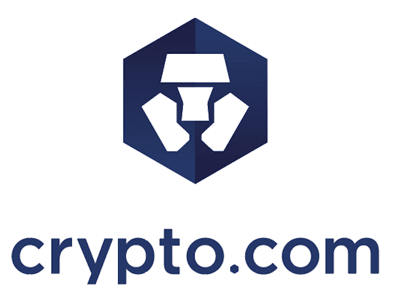If you've been in the crypto space long enough, you've probably heard of Binance and Coinbase. These are two of the most popular cryptocurrency exchanges out there, and for a good reason. They're both easy to use, have a ton of features, and are well-established, with millions of users around the world. But which one is the best? This article will pit Binance against Coinbase and see who comes out on top.
Binance is the largest cryptocurrency exchange in the world by trading volume. It's available in over 180 countries and has been around since 2017. Coinbase, on the other hand, is available in 100 countries and was founded in 2012. While the latter has been around for much longer, it focuses more on ease of use and security than on advanced trading features, and this is where the former shines. Binance has a keen focus on feature-rich trading, and this is evident in its offerings.
Here's an overview of the key differences between the two exchanges:
Cell |  | |
Fiat Currencies | USD, GBP, EUR, CAD, AUD, HKD, JPY & 35 more | USD, EUR, GBP, CAD, MXN, HRK, CZK, DKK & 10+ more |
Number of Coins | 280+ | 160+ |
Trading Fees | 0.1% | 0.5% + Coinbase fee which varies depending on amount traded and payment method |
Deposit Methods | Cell | Cell |
Bank Transfer | ||
Google Pay | ||
Fedwire | ||
PayPal | ||
Credit Card | ||
Debit Card | ||
Apple Pay | ||
SWIFT | ||
Skrill | ||
SOFORT/iDEAL | ||
Cryptocurrency | ||
Features | Cell | Cell |
User-friendly | ||
Mobile app | ||
Live Chat | ||
Security | Cell | Cell |
2FA | ||
Biometric security | ||
ISO 27001 certified | ||
Offline cold storage | ||
Website |
Cell | ||
Fiat Currencies | USD, GBP, EUR, CAD, AUD, HKD, JPY & 35 more | USD, EUR, GBP, CAD, MXN, HRK, CZK, DKK & 10+ more |
Number of Coins | 600+ | 160+ |
Trading Fees | 0.1% | 0.5% + Coinbase fee which varies depending on amount traded and payment method |
Deposit Methods | Cell | Cell |
Bank Transfer | ||
Google Pay | ||
Fedwire | ||
PayPal | ||
Credit Card | ||
Debit Card | ||
Apple Pay | ||
SWIFT | ||
Skrill | ||
SOFORT/iDEAL | ||
Cryptocurrency | ||
Features | Cell | Cell |
User-friendly | ||
Mobile app | ||
Live Chat | ||
Security | Cell | Cell |
2FA | ||
Biometric security | ||
ISO 27001 certified | ||
Offline cold storage | ||
Website |

- Supports 600+ cryptocurrencies
- Largest crypto exchange in the world by trading volume
- Various ways to earn interest on many cryptocurrencies
- Supports spot, margin, futures, and derivatives trading
- Much lower trading fees than Coinbase
- Limited access to customer support
- Not available to US residents

- The platform has a very user-friendly interface, perfect for beginners
- Users can earn interest from holding their crypto
- Offers a simple buy/sell interface for beginners and an advanced interface for experienced traders
- Customer support is available via email, live chat, and phone
- Coinbase is available to USA residents
- Fewer trading features for advanced traders
- Higher fees than Binance
Binance vs Coinbase Fees
Deposit Fees
Binance supports free crypto deposits. When depositing fiat currencies, the cost will vary based on your country and the method of payment. For some countries and payment methods there is no fee involved, whereas for others it can cost up to 3.5%. You can check the relevant deposit fees here.
Coinbase also charges fiat deposit fees depending on your location and payment method. For example, SEPA transfers are free for residents of Europe but it can be quite expensive if you're making an international bank transfer.
Credit/debit card purchases also come with a spread fee of 0.50% plus a variable fee depending on the method used. For instance, debit card purchases will incur a 3.99% fee (plus the 0.5% spread fee).
Trading fees
Binance has a tiered fee structure, with a maximum 0.1% fee. The higher your trading volume, the lower the fees you pay. You can also reduce your trading fees by 25% if you use BNB.
Unfortunately, Coinbase has a confusing fee structure, and the total amount charged depends on different factors such as the payment method used when buying crypto, and the amount you are buying. When you buy crypto, there is a 0.5% spread fee, plus a 'Coinbase fee' which is the larger of the 'flat fee' or 'variable fee', as shown in the tables below.
Flat fee
Transaction value | Fee |
|---|---|
$10 or less | $0.99 |
$10 to $25 | $1.49 |
$25 to $50 | $1.99 |
$50 to $200 | $2.99 |
Variable fee
Payment Method/Payout Method | Effective Rate of Conversion Fee |
|---|---|
US Bank Account | 1.49% |
Coinbase USD Wallet | 1.49% |
Debit Card or PayPal | 3.99% |
Instant Card Withdrawal | up to 1.5% of any transaction and a minimum fee of $0.55 |
If you want to access cheaper fees on Coinbase, you can use the Coinbase Pro alternative. Coinbase Pro is a market where you trade crypto, as opposed to buying it directly from the platform. The fees are 0.5% for makers and takers.
Withdrawal Fees
On Binance, withdrawal fees largely depend on the crypto or fiat currency being withdrawn. For fiat currencies, the method of withdrawal will also affect how much you will be charged. Check Binance site here to see the relevant withdrawal fees for your needs. There are some methods of withdrawal that are completely free of charge.
Coinbase is not very transparent with their fee structure, and it varies based on geographical location and payment method. The most common methods are bank transfer (SEPA) with a low fee of €0.15, and US wire transfer, which costs $25.
Winner - Binance
Coinbase's high fees and complicated fee structure means it loses this round. Binance has much more reasonable fees, with various free withdrawal and deposit methods, and trading fees of only 0.1%.
Deposit Methods
Binance offers a range of deposit methods, that will vary based on where you reside. For example, you may be able to use bank transfer, debit card, credit card, SWIFT, and more.
Coinbase has a huge range of payment methods, such as wire transfer, debit card, credit card, Paypal, ACH bank transfer, or SEPA deposit (for European users).
Winner - Coinbase
Coinbase offers a wider range of deposit methods, so it wins this section.
Binance vs Coinbase Features
Now that we’ve looked at the key offerings of each exchange, let’s compare them side-by-side.
Trading Markets
Binance is a world-renowned cryptocurrency exchange that offers an extensive range of trading options for digital assets, including spot trading, margin trading, and futures trading.
For traders who want a basic trading experience, spot trading is available. Binance offers more than 1,000 spot trading pairs, making it one of the most comprehensive exchanges in terms of the number of tradable assets.
For margin trading, Binance offers both isolated margin and cross margin options, with up to 10x leverage on selected pairs. In addition, Binance also offers 100+ Futures contracts (USD-M and COIN-M perpetual contracts), with up to 20x leverage. Last but not least, Binance also supports over 40 Leverage tokens, which are designed to offer exposure to the underlying asset without the need to actually own the asset. Overall, Binance is a highly versatile exchange that should be able to meet the needs of most traders.
As any trader knows, having a reliable and user-friendly trading platform is essential. Coinbase's platform is intuitive and easy to use, making it a great choice for those just getting started in the world of cryptocurrency trading. In fact, the exchange offers two interfaces for trading: Simple and Advanced.
The Simple trading interface is designed for those who want to buy and hold cryptocurrencies, while the Advanced trading interface is for traders who want to take advantage of Coinbase's 200+ spot trading pairs. While Coinbase does not offer margin or derivatives trading, it is still a great option for those looking for a reliable and user-friendly platform.
NFT Marketplaces
With more and more people looking to get involved in the burgeoning market, it was only a matter of time before NFT marketplaces began to emerge.
The Binance NFT marketplace offers a number of features that should appeal to both collectors and creators. Perhaps most notably, it includes a minting studio where users can create their own NFTs. Additionally, the marketplace provides a platform for buying and selling NFTs, as well as an events platform that gives users exclusive access to premium NFTS.
Users also stand a chance to win rare NFTs from the Mystery Boxes full of rare NFTs as part of the launch. With its comprehensive offering, Binance is sure to be a major player in the NFT space going forward.
The Coinbase NFT marketplace is still in its beta phase, but it already offers a number of features that are sure to appeal to users. For example, it includes a "discovery" section that helps users find new and interesting NFTs. There's also the "shop" section where users can buy and sell NFTs in ETH or USD.
It's clear that both Binance and Coinbase are serious about making a mark in the world of NFTs. Which exchange will come out on top? Only time will tell.
Loans
To support margin trading, Binance offers users crypto loans. This allows users to borrow money against their crypto assets to trade with leverage. The maximum loan amount and interest rate depend on the asset being borrowed as well as the user's account level. The platform offers a loan term of up to 180 days, and if you stake your collateral, you can get your loan at no interest!
Coinbase also offers a similar service called "Borrow." While the platform doesn't support margin or derivatives trading, users can still borrow cash with crypto as collateral. You can borrow up to $100,000 with up to 8% APR. Unfortunately, this service is only available to US residents in Connecticut but expected to roll out to other states soon.
It's worth noting that both platforms require users to undergo KYC verification before they can use these services.
Crypto Wallets
Binance has a crypto wallet called Trust Wallet, which is a mobile app that allows users to buy and store crypto and NFTs. Besides being a safe and secure way to keep your digital assets, the app allows users to perform transactions and track market prices on the go. You can also earn interest on your holdings by staking them in the Binance ecosystem.
Coinbase also has a crypto wallet called Coinbase Wallet. The Coinbase Wallet is a mobile app that allows users to buy, sell, store, and use cryptocurrency. Unlike Trust Wallet, Coinbase Wallet does not support staking. However, it does allow users to connect with dApps and use their crypto holdings to perform transactions. The best thing about it is that you don't need to open a Coinbase account to use Coinbase Wallet.
Unique Features
Binance offers a suite of sophisticated trading tools for both novice and experienced investors. One of the most unique features of Binance is its spot grid trading functionality. This allows users to automatically place buy and sell orders at pre-determined price levels, providing a simple and effective way to trade large numbers of digital assets.
Binance also offers P2P trading, which allows users to trade directly with one another without the need for a centralized exchange. This can be a great option for those looking for more personal control over their trading experience.
Another unique feature of Binance is its native cryptocurrency, BNB. BNB can be used to pay for fees on the Binance platform, and it also provides holders with a variety of benefits, such as discounts on trading fees and access to exclusive events.
Binance also offers several ways to grow your investment through its Binance Earn program, including staking, farming, and dual investment opportunities. Plus, with the Binance Card, you can easily spend your crypto earnings anywhere that accepts Visa.
Like Binance, Coinbase offers users a crypto card, the "Coinbase Card," that allows you to spend your digital assets anywhere Visa is accepted. The card is, however, currently limited to US residents.
Winner - Binance
Binance is undoubtedly one of the most feature-rich exchanges in the world, and definitely the better option when compared to Coinbase. Binance offers margin trading, staking, earning products, and automated crypto trading.
Binance vs Coinbase Security
As a leading crypto exchange, Binance handles billions of dollars worth of transactions daily, and a ton of sensitive user data. To ensure the safety of all its users' funds and data, Binance employs a multi-layered security architecture that includes both hot and cold wallets, as well as two-factor authentication (for withdrawals and logins) and IP whitelisting. They've also invested in a risk management system to help them monitor and identify suspicious activity on the platform.
When it comes to security, Coinbase takes no chances. They hold 98% of their cryptocurrency offline in cold storage, spread across multiple physical locations. The remaining 2% of assets that are held online are protected by an insurance policy covering losses from hacks, fraud, or theft. But that's not all, Coinbase also employs multiple layers of security, including data encryption and multi-factor authentication. Plus, they offer extra security features like Coinbase Vault, which lets you store your coins in a time-locked account that requires multiple approvals to access. You can also store crypto addresses or add users to your Address Book to help you make transfers quickly and safely.
Winner - Draw
It's a tie! Both Coinbase and Binance offer robust security features to keep your coins safe. And while they've had their security breaches, they've taken steps to improve their security protocols.
Binance vs Coinbase Cryptocurrencies Offered
Binance currently lists over 600+ different coins, while Coinbase only supports around 600. Additionally, Binance offers more than 1,000 different trading pairs, while Coinbase only has around 200.
Winner - Binance
Binance offers a much wider selection of cryptocurrencies than Coinbase, making it the obvious winner of this section.
Binance vs Coinbase Summary
Binance and Coinbase are two of the most popular cryptocurrency exchanges available, but there are some key differences between them. Binance offers more than 600 different cryptocurrencies, as well as 1,000 trading pairs. There are plenty of features available that are perfect for serious crypto traders, making it one of the most comprehensive exchanges available.
Coinbase, on the other hand, offers around 160 different cryptocurrencies and 200+ trading pairs. While this is still a decent number, it is dwarfed by what Binance has to offer. In terms of sheer variety, Binance is the clear winner. However, Coinbase is marketed as a user-friendly exchange, and is extremely easy for beginners to understand. There is also Coinbase Pro for those who are interested in trading crypto on the market, at lower fees of 0.5%. Additionally, Coinbase is much better regulated than Binance. It is registered with several financial authorities in the USA and Europe, which gives it a higher level of legitimacy.
Which crypto exchange is better depends on what type of user you are and what you are looking to achieve. If you are a serious and experienced trader, Binance is the obvious choice. If you are just starting out with cryptocurrency and want to buy and hold some coins, Coinbase is the easiest way to become acquainted with the crypto industry.
Overall Winner - Binance
Binance wins overall, as it is a much more comprehensive trading platform, with tons of features, 600+ coins, and very low fees.


Still Researching?
To learn more about either of these exchanges, read the reviews of Binance (here) and Coinbase (here). If you are from the US, you won't be able to access Binance, but there is a sister site Binance.US that you can try. You may also want to consider some other options, which you can find in this article of the best crypto exchanges for US residents. The table underneath summarizes and compares key information about the top crypto platforms.
Comparison Table of the Best Crypto Exchanges in the USA
Cryptocurrency is offered by eToro USA LLC (“the MSB”) (NMLS: 1769299) and is not FDIC or SIPC insured. Investing involves risk.
Marketplacefairness.org provides all its content for informational purposes only, and this should not be taken as financial advice to buy, trade or sell cryptocurrency or use any specific exchange. Please do not use this website as investment advice, financial advice or legal advice, and each individual's needs may vary from that of the author. This post includes affiliate links with our partners who may compensate us.
To view our privacy policy read this breakdown.






